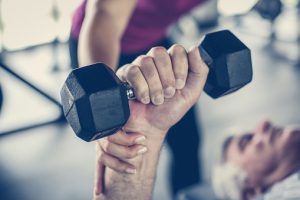 When we’re young, we feel like we can accomplish anything. We can go anywhere and do anything because we don’t feel encumbered by our physical limitations. However, when we age, we start to lose this feeling of empowerment. Our once-impressive physical physique fades away, leaving us weak and defenseless.
When we’re young, we feel like we can accomplish anything. We can go anywhere and do anything because we don’t feel encumbered by our physical limitations. However, when we age, we start to lose this feeling of empowerment. Our once-impressive physical physique fades away, leaving us weak and defenseless.
However, new research into the reasons why we lose muscle cells as we age may lead to the development of new drugs that can slow the process of muscle decline.
A different explanation for muscle loss
Advertisement
It was previously thought that the driving factor behind age-related muscle decline was the loss of motor neurons—nerve cells in the spinal cord controlling muscle. Starting in our 30s, we begin to notice that activities that once came easily are now difficult.
When we reach our 70s and 80s, we become weak and frail, having to depend on others to lend us their strength on a daily basis. No amount of diet and exercise can prevent this inevitable result.
The pursuit of preserving our youth has been a goal for many researchers and scientists. Understand how and why the body ages over time is something worth pursuing in the hopes of improving lives.
Muscle stem cell’s true role
Research using mouse models has found that muscle stem cells play a very important role in lifelong maintenance of muscle. This challenges the current, widely accepted theory of motor neurons.
Muscle stem cell pools were seen to reside in muscle tissue that responds to exercise and injury. These stem cells are directly involved in repair and growth of muscles. It is the dying off of these stem cells that is theorized to be the driving factor for muscle loss.
The research team used experiments that involved depleting muscle stem cells in mice without disrupting motor neurons. They saw that muscle decline was accelerated much earlier in their lifespan than expected.
Advertisement
Mice that were genetically altered to prevent muscle stem cell loss maintained healthier muscles in old age.
Subsequently, no evidence was found linking motor neurons to age-related muscle loss.
“I think we’ve shown a formal demonstration that even for aging sedentary individuals, your stem cells are doing something. They do play a role in the normal maintenance of your muscle throughout life,” said study author Joe Chakkalakal, Ph.D., assistant professor of Orthopaedics in the Center for Musculoskeletal Research at the University of Rochester Medical Center.
